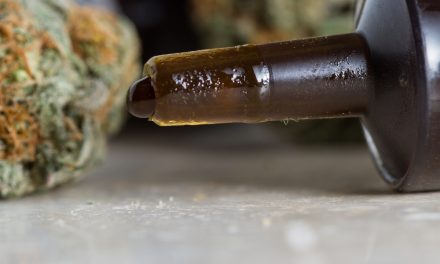As New York Gov. Andrew Cuomo has rapidly become an advocate of legal cannabis, the “Empire State” is about to see green. The new law has “triggered a gold rush mentality among marijuana entrepreneurs, who are investing deeply in what could quickly become one of the world’s most important emerging markets. Even though how, exactly, the state plans to regulate the drug remains nebulous.”1 If they play their cards right, one of the biggest states in the country could quickly become one of the biggest legal cannabis markets in the world.
RELATED STORY:
We love and support the use of cannabis and have a wonderful, organic line of CBD oil products. Made here in the USA! Click here for more info or to purchase one of our amazing products.
In 2018, New York’s tightly controlled medical marijuana market (they only have 30 dispensaries in the entire state) made nearly $264 million. But analysts project that total cannabis sales “could jump to more than $1.5 billion by 2022 with full legalization of the drug that is expected to come this session.”1
RELATED STORY:
However, Cuomo isn’t just concerned about the money. He’s looking to “create an industry that empowers the poor communities … not the rich corporations who come in to make a profit.”1And that vision will hopefully be part of the state budget due by April 1st. It will first have to be reconciled with the existing bill from Assembly Majority Leader Crystal Peoples-Stokes’ and state Sen. Liz Krueger:
“Their languishing proposal is designed to benefit communities of color who have disproportionate incarceration rates for marijuana-related crimes by aggressively decentralizing marijuana production and boosting small businesses.
Still, it’s far from certain how that can be achieved when so many well-organized corporate players are already poised to profit from legalization. Rhetoric about social justice has often been a part of the sales pitch in the 10 states and the District of Columbia that have preceded New York in legalizing the drug for recreational use.
‘As we’ve seen places implement legalization around the country, the issue of racial and economic equity is not something that anyone has gotten right yet,’ said Robert Galbraith, senior research analyst at the Public Accountability Initiative in Buffalo. In fact, he said at this point records show that familiar power players in New York are well-positioned to reap the benefits of legalization.”1
And according to Galbraith, several wealthy Cuomo donors have wasted no time buying into the burgeoning cannabis industry:1
- Richard and Robert Sands, who donated more than $300,000 to the governor and own major alcohol distributor Constellation Brands, spent $4 billion to buy 38 percent of Canadian marijuana giant Canopy Growth shortly after New York state health officials endorsed marijuana legalization last summer.
- Canopy announced plans in January to invest up to $150 million in a hemp processing center in Binghamton.
- The Falcone family, which owns real estate firm Pioneer Companies, announced it will build a hemp processing facility with the help of a $650,000 state grant. The family and its companies have donated at least $180,000 to Cuomo’s gubernatorial campaigns.
- In Buffalo, Brad Termini, son of real estate developer and Cuomo donor Rocco Termini, has plans to build a $200 million marijuana growing and processing operation on the waterfront.
We will be watching New York on April 1st. But if lawmakers are smart, they will pay attention to how they control and tax the miracle plant. New York currently has a very large underground cannabis market and if they raise taxes too high, it will stay that way. (Which is exactly what happened in California where the legal market shrank because the black market was significantly cheaper.)
RELATED STORY:
Although 33 states have now legalized cannabis for medical use and 10 states have legalized it for recreational use, it’s still an illicit, Schedule I drug. That’s right, even though we know for a fact that cannabis has great healing power, the DEA continues to classify it as a “drug with no accepted medical use and a high potential for abuse.” But, since the 2018 Farm Bill made hemp production legal, the next logical step is for the federal government to fully legalize cannabis as well.
We wait.
SOURCE:











